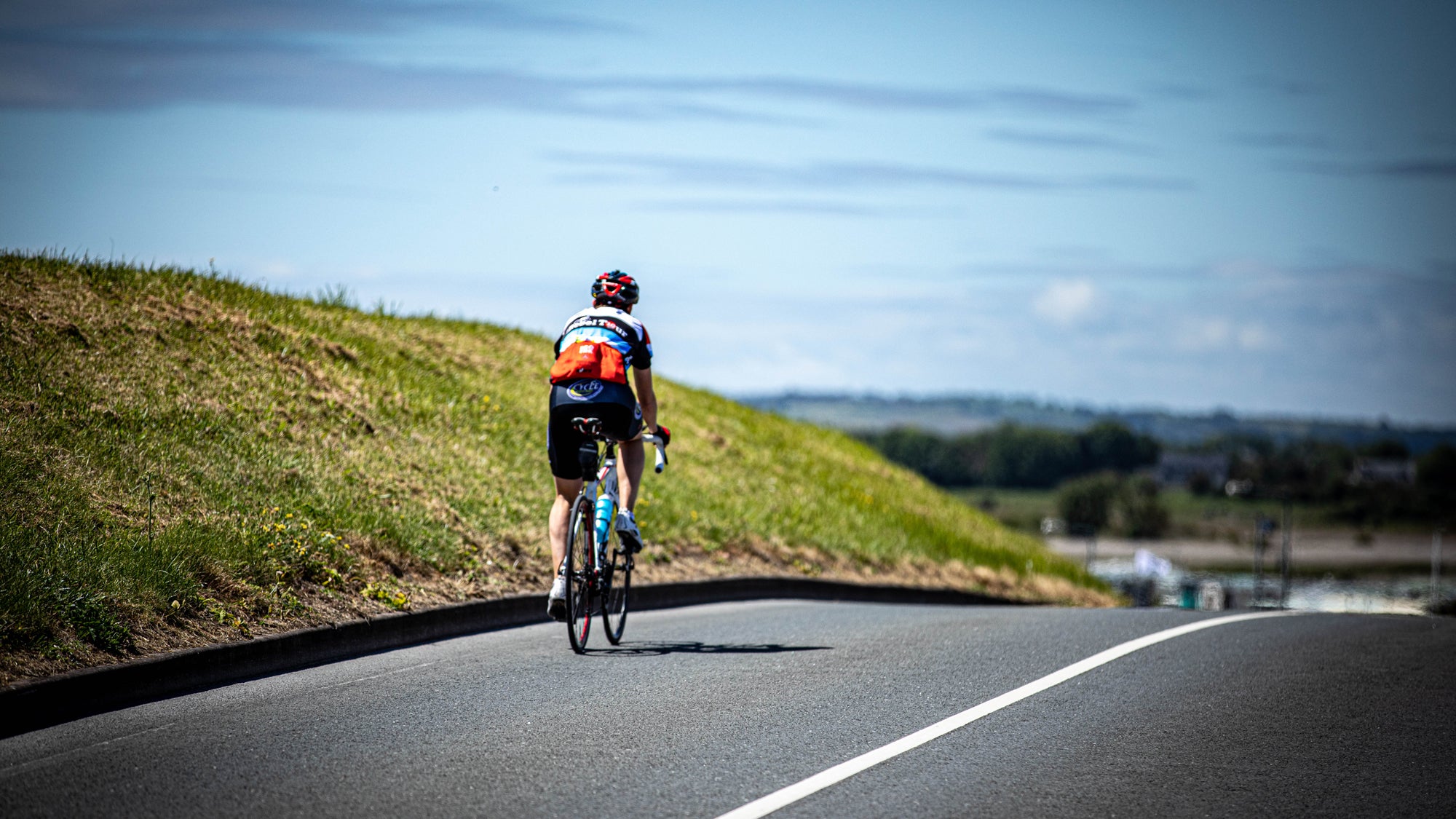Beginner's Luck: Why Time Goals are the Enemy of the “Average” Triathlete

This is one of those articles where I can’t wait for the comments. You know why? Because the super-fast people will come out of the woodwork to remind me how much I suck and how slow I am, and why this article about letting go of time goals is ridiculous. Okay, fine. I am so slow.
But go away, I’m not writing this for you.
For now, I am talking to my middle to back of the packers, to the dead-last finishers. You are my audience for this article.
And here’s the secret to “racing” triathlon when you are as slow as the last bit of honey coming out of the plastic honey bear squeeze bottle: stop looking at the clock.
Here is an example of how each race season started for me—for the past seven or so years.
“This year, I am going to break the 6-hour 70.3. Oh! I might do a 13-hour Ironman, too! Oh, and a 23-minute 5K!”
Time goals are terrible for some of us slower folks in the sports of swim, bike, and run. You know why? Because taking off substantial amounts of time off your already-hard-fought PR is hard. To earn a few minutes on a 5K? That “small feat” actually takes stupid amounts of work and pain and time. And for the most part, when you come to triathlon overweight or talentless or time-crunched (or all three, like I did), trying to make those kind of Herculean efforts is not only hard—but it can be devastating when we “fail.”
Well, this is a garbage article. You are basically saying that slow, overweight, and busy people can’t become fast triathletes. How “inspirational.”
No, I am not saying that at all. I know many—okay, maybe a smallish handful—who have successfully gone from back of the pack to qualifying for Kona. I have already pled my case for not racing Kona, by the way. But I’m staying that the dream is certainly possible.
But what I am also proposing about us mere mortal triathletes is that setting time goals in our sport can be misplaced and backwards—and stressful. Not because we can’t grow and reach time goals, but often because we are looking at our fast counterparts and setting similar time goals—to theirs.
A naturally fast, thin, and talented runner will always do better than someone like me. Yet, at the beginning of each season, I would start the ridiculous comparison game of setting my time goals to something like they are accomplishing.
And then when I didn’t reach them (or come anywhere close to that time), I used the result as proof of how much I sucked (see paragraph 1).
Then I finally realized that I didn’t care. Or I was simply too tired to care. My time was not the point of racing for me. And that is when it all changed.
For just a season, I encourage the beginners or the middle-to-back-of-the-packers to throw out the time goals and focus on the forward motion of the sports. Focus on the consistency of hitting all of the workouts possible. Focus on the benefits of eating well and feeling well. Focus on doing all the things well—and not worrying about the one solitary thing that drives us all crazy in all areas of our lives: time.
Time will pass. Make your time in the sport and in life count. Enjoy the journey. Breathe in the progress and the promises you are keeping to yourself. Simply work on allowing the training or racing time to pass without constantly worrying about and critiquing yourself for how slowly you may get there. The freedom that comes with it? Worth every second.
Meredith Atwood (@SwimBikeMom) is a recovering attorney, motivational speaker and author of the best-selling book, Triathlon for the Every Woman. She is the host of the podcast, The Same 24 Hours, and writes at MeredithAtwood.com. Her next book, The Year of No Nonsense, is available December 2019.